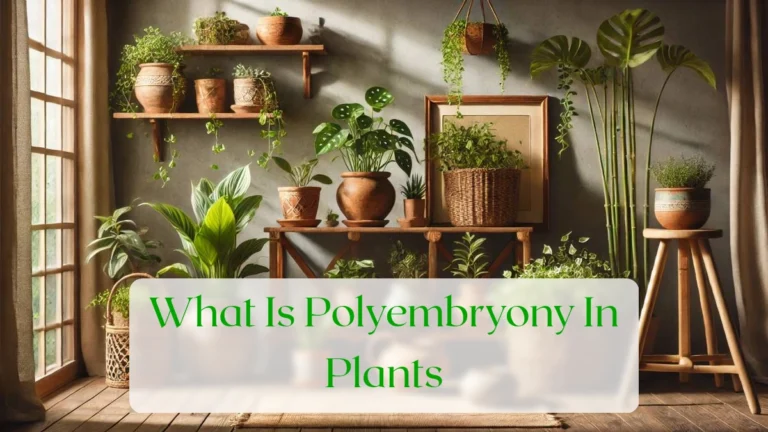Discover the Healing Secrets of Jammu & Kashmir’s Amazing Herbs!
This guide explores the rich medicinal plant heritage of Jammu & Kashmir (J&K), helping you identify and understand their uses. We’ll delve into popular plants, their benefits, and traditional applications, uncovering the powerful medicinal plants found in the breathtaking landscapes of J&K. Learning about these plants connects us to centuries of traditional knowledge and offers potential pathways to natural well-being.
Top Medicinal Plants of Jammu & Kashmir You Should Know
Jammu & Kashmir boasts a treasure trove of medicinal plants. Let’s explore some of the most prominent:
Ashwagandha: The Wonder Herb
Ashwagandha ( Withania somnifera) is renowned for its adaptogenic properties. It helps the body manage stress, improves sleep quality, and offers a significant boost to the immune system. Traditionally used in Ayurvedic medicine, its benefits are now widely recognized by modern science.
Tulsi: The Holy Basil
Tulsi (Ocimum tenuiflorum), also known as Holy Basil, is a revered plant in India. It’s a potent natural immunity booster, providing relief for respiratory ailments. Its anti-inflammatory properties also make it valuable for various health issues. For centuries, Tulsi has been a cornerstone of traditional medicine.
Giloy: The Amrita Vine
Giloy (Tinospora cordifolia), or Amrita Vine, is celebrated for its powerful antioxidant activity. It supports the immune system and holds a significant place in traditional Ayurvedic practices. Its numerous health benefits have contributed to its widespread use throughout India.
Read more: medicinal plants in rajasthan
Medicinal Plants for Common Ailments in J&K
The medicinal plants of J&K provide natural remedies for various health concerns:
Treating Cough & Cold with Local Herbs
Many herbs effectively combat cough and cold symptoms. For instance, plants like Adhatoda vasica (Vasaka) and Tussilago farfara are known for their expectorant and anti-inflammatory properties. Traditionally, these are prepared as syrups or decoctions. Modern research supports these traditional applications, showing their effectiveness in relieving respiratory symptoms.
Herbal Remedies for Digestion Issues
Plants like Boerhavia diffusa (Punarnava) aid digestion and improve gut health. Preparing them as teas or adding them to food is common practice. However, it’s crucial to note that individual responses may vary due to dietary habits and potential sensitivities to these plants, hence moderation.
Natural Pain Relief using J&K Plants
Certain plants serve as natural analgesic agents, reducing pain and inflammation. For Example, Zingiber officinale (Ginger) is widely celebrated for its pain-relieving effect along with certain other rare plants like Colchicum luteum, though using it requires special knowledge and experience avoiding possible poisonous effects from related species. It’s crucial always to use such remedies under guidance from experts. Accurate identification is paramount here!
Where to Find & How to Use Medicinal Plants of J&K Responsibly
Gathering medicinal plants requires a balance of expertise and respect:
Sustainable Harvesting Practices
Responsible ethical sourcing ensures we use resources wisely. Collect plants with care from designated areas and avoid gathering endangered, rare varieties. Contributing to localized projects focused on planting medicinal crops is an environmentally conscious commitment supporting local communities.
Identifying Medicinal Plants Safely
Accurate and safe identification of J&K’s flora is primarily done using expert verified data and traditional expertise provided through formal classes rather than casual observation, crucial to preventing harm from incorrectly identified potentially poisonous plants. Always verify with books from trusted writers who include precise identification pictures and other reference sources written by experts.
Preparing Herbal Remedies at Home
Simple home preparations, such as teas and tinctures, can harness medicinal plant capabilities, yet following proper measures such as thorough cleanliness guidelines before preparation is a prerequisite of doing things appropriately. Getting guidance from well-reputed medicine persons locally is important prior to preparing any such remedy at home due to complexity aspects in many cases.
Read more: medicinal plants of west bengal
Exploring the Rich History of Traditional Medicine in J&K
J&K embraces a diverse medicinal heritage, combining profound elements:
Ancient Ayurvedic Practices
Ayurveda, steeped in history, guides preparation techniques using specific processes like powder reduction, preparing specific concentrations in liquids, using appropriate drying agents amongst other methodologies. The principles of Ayurveda shape the current usage and conservation methods which has changed slightly over time in many ways.
Unani Medicine in Jammu & Kashmir
Unani traditions introduced from the ancient world hold their place throughout the past here in Jammu and Kashmir region supplementing the various elements already prevalent in such a diverse geographical landscape and providing additional dimensions of preparation methodologies, usage elements that vary widely also adding to various plants used to expand into varied remedy mixtures that are found here locally for many applications, particularly concerning the balance of the different elements thought to define internal biological balance.
Indigenous Knowledge & Conservation
Safeguarding local awareness of plants that have historically played therapeutic roles within each community withinJ& K’s areas which involves sharing detailed precise knowledge requires attention. Preventing improper endangerment includes careful implementation of collection tactics and educating future herbalists, particularly focusing on conservation of these species so as to preserve genetic integrity across this highly bio diverse area.
Precautions & Disclaimer on Using Medicinal Plants
While advantageous, using medicinal plants ethically also ensures the awareness on what effects could become problematic under what circumstances. Knowing such specifics keeps everyone healthy & safe and will assist you in maintaining long term benefits properly.
Potential Side Effects and Interactions
Some interactions might happen between plants and prescribed medicines, especially regarding potential herb / medication interactions, allergic problems which have consequences requiring consulting physician before use to know what’s wise beforehand.
Dosage and Preparation Guidelines
Precise measurement is needed along with other details concerning usage, preparation methods as those matter when preventing errors when using medicinal plant. Consultation ensures correct and accurate procedure so as to generate intended affects and not accidental detrimental consequences from inappropriate application or measurement errors, especially for rare and difficult to identify types of plants which require much familiarity in order to make effective and safely measured applications concerning the correct usage and preparation standards specific concerning these varieties of rare plants
Read more: medicinal plants in tamilnadu
FAQ
Are all medicinal plants of J&K safe to use? Not all are universally safe; some may cause allergic reactions or interact with medications therefore seek expert guidance; careful preparation also greatly helps avoid issues that could lead to medical adverse happenings.
Where can I find authentic medicinal plants in J&K? Local practitioners and expert verified suppliers provide accurate sourcing.
Are there any government initiatives to protect these plants? Some ongoing efforts exist towards the sustainability and conservation efforts relating these regions indigenous & historically relevant plants from Jammu & Kashmir regions however the nature of specific initiatives vary so referring directly to J&K departments for that region will update you concerning particular measures implemented to prevent issues involving local plant welfare measures
How can I learn more about traditional healing practices of J&K? Look for sources like books, local experienced experts, educational institutions (Universities, some Colleges might offer such data, traditional communities as needed), which are good for additional guidance on identifying how to learn & where locally established learning is done in conjunction with any specific institutions of notable reputation).
What are the best resources for identifying J&K medicinal plants? Books by regionally specialized botanist experts, guides produced by expert regional specialists, or by accredited establishments or university experts and knowledgeable instructors or experienced local traditional practitioners who carefully demonstrate and teach.
Conclusion
Jammu & Kashmir’s medicinal plant wealth holds immense potential, yet responsible use mandates sustainable practices and respect for ancestral knowing along with modern safety criteria established. Utilizing local traditional systems when seeking remedies and integrating those remedies with modern precautions can greatly improve medical efficiency for a person given you work with trained specialists when working those traditional methodologies alongside appropriate medical methodologies today. Share this guide to appreciate the invaluable legacy of Jammu & Kashmir’s medicinal botanical collection responsibly. Leave your comments and share your perspectives from this area to contribute & share what you know for community participation to help improve the knowledge base available here from your direct relevant experience.



